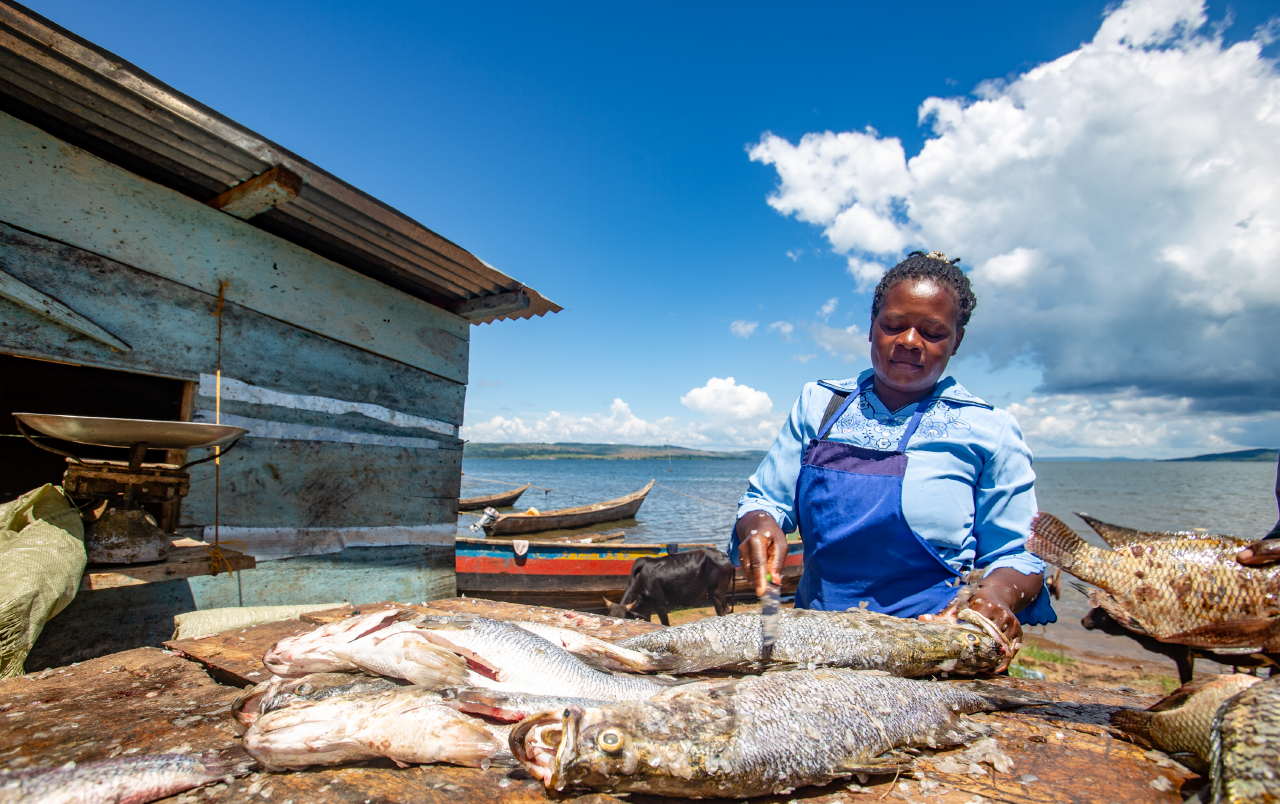In an extreme measure to deal with the pandemic, Uganda’s government instituted a lockdown, while neighbouring Tanzania did not. This article looks at how the lockdown and no-lockdown policies affected the fisheries sector and value chain nodes in those two countries. We also analyse the effects on these two developing economies, in particular on the large informal sector set up.
The importance of the fishery sector
For Tanzania and Uganda, the fishing sector at Lake Victoria has long been the source of livelihood for the communities along the shoreline. The segment is crucial for proper nutrition and food security and is also a source of employment and income for millions of people in the area.
Small scale enterprises dominate the business, and its contribution in terms of GDP is approximately 2.4% in Uganda and 1.2% in Tanzania. For Tanzania, the sector provides direct employment to ca. 183,800 fishers and indirectly to more than 4,000,000 people. In Uganda, the industry employs around 1.3 million people in total.
Consequently, the fishery sector’s influence on achieving the Sustainable Development Goals (SDGs) is of great importance. It is vital, especially for Goal 1 (no poverty), as communities along the lake shores earn a living and sustain their families via the fishing business. Also, Goal 2 (zero hunger) is affected, given that people get protein from fish. Lastly, the sector contributes to employment generation and the GDP, hence supporting Goal 8 (decent work and economic growth).
COVID-19 impact
COVID-19 changed the activities in this vital food sector drastically, especially in Uganda. These alterations are noticeable in the value chain nodes, including the production node, processing node and trade node.
Fishing activities had to be rescheduled due to the limitations in fishing quotas (time allocated for fishing) and fewer fishers on the boat (a maximum of two). As a result, the harvested volume of fish was less. Post-harvest losses increased in Uganda, compared to Tanzania, due to the lack of people able to handle the catch volume.
In Tanzania, fish species targeted remained about the same. As there were no curfew restrictions, fishing time was not affected. No post-harvest losses were recorded either. The number of crew members on the boats remained at five, and time spent on the lake stayed the same. Accordingly, there was no reduction in harvested fish.
Meanwhile, in Uganda, fish factory working hours were reduced because of social distancing requirements. Consequently, workers had to be laid off in some factories, while others had to work in two shifts. New guidelines of “stay at home” or “stay at work” increased operational costs of food, accommodation and utility bills.
Things in Tanzania continued the same. Silverfish, Nile perch and Nile tilapia were treated both at fish factories and by artisanal processors. Factories retained their staff, and operational costs remained about the same. However, despite all of this, the volume of fish handled for industrial processing decreased. That is because it is mainly for export to the international market, especially to the European Union.
For Uganda, things were worse also due to a strict ban on transportation mechanisms. Additionally, the imposition of curfew times, and the closure of weekly markets, affected the fish trade. It led to a significant price reduction.
What we can learn from the crisis
In hindsight, it is clear that policies and interventions to reduce the infection rate of COVID-19 should focus on prevention measures and aim to keep the economy healthy.
In the specific case of the fishery sector, we recommend the following policies and measures to make the sector shock-proof and resilient in both countries:
- Develop a robust procurement and distribution facility for fish and fishery products to sustain both fish trade and consumption amid shocks and stresses such as COVI-19 and other crises.
- Negotiate for flexible credit facilities from financial institutions that extend loans to fishery communities’ businesses.
- Reduce or remove the tax on social media use, mobile money, and airtime, as well as the tax on ICT gadgets. These taxes hinder businesses’ growth.
- Upgrade energy infrastructure in remote areas of fisheries production. It will solve the challenge of powering gadgets for ICT and provide refrigeration services that keep fish preserved for export.
- Build capacity of artisanal fishery traders in the use of social media, especially in marketing strategies.
It appears that, while the total lockdown might be necessary for developed countries, in developing countries, it might be helpful to protect businesses. There are other forms of lockdown, for instance, micro or smart lockdowns. These would strike a balance between pandemic prevention measures and economic livelihood. In the end, in many developing economies, people are more likely to die from hunger due to reduced earnings than from the disease itself.


